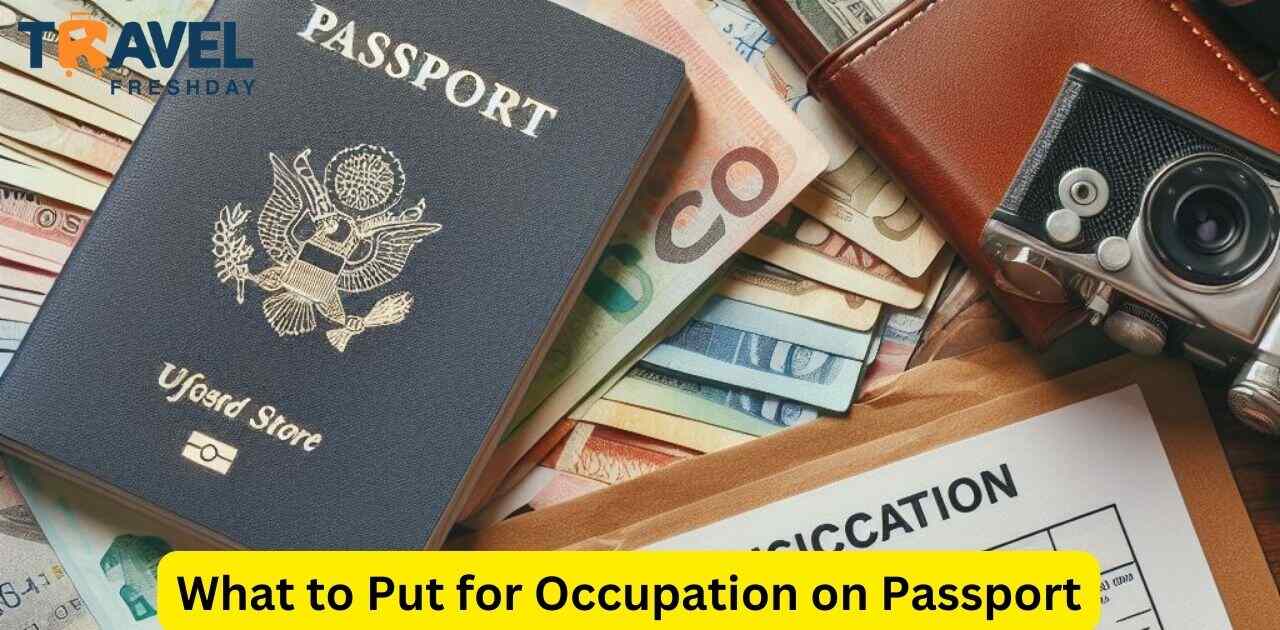Your passport occupation is more than just a demographic identifier – it can impact your travel experiences and visa decisions. Understanding the significance of listing an accurate profession and following passport guidelines is key.
Understanding the Significance of ‘Occupation’ on Your Passport
The occupation field on passport applications serves multiple purposes. Firstly, it is a standard demographic data point that gives immigration officials a sense of travelers’ backgrounds. Secondly, some countries may use occupation to determine eligibility for business or work-related travel. Thirdly, certain professions may put people at higher risk profiles for visa screening.
Therefore, being truthful and using common terminology for your occupation is important for smooth travel experiences. While it may seem innocuous, your stated profession can have implications on immigration, visa decisions, and patterns noticed by officials. Declaring it accurately is in your best interest.
General Guidelines for Filling Out Occupation on Passport
When filling out the occupation field on your passport application form, follow these general guidelines:
- Choose your current full-time profession if employed. Use an official job title.
- Retirees can list their last held position or simply write “Retired”.
- For students, write “Student”. You can also include your major/degree.
- Homemakers should write “Homemaker” or “Stay at Home Parent”.
- If currently unemployed, write “Unemployed”.
- Use common terms recognized by officials, not internal or abbreviated job titles.
- Restrict it to 30 characters maximum, including spaces.
- List your sole or primary occupation. Do not include hobbies or part-time work.
Stick to truthful, clear, universally understood occupation terms on passport applications. Avoid obtuse or vague descriptions. This facilitates smoother travels.
Listing More than One Occupation: Is it Possible?
Given the space limitation, passport applications only allow declaring a single occupation. But what if you juggle multiple succeeding roles?
First, list your full-time job or role generating the majority of your income. Supplementing part-time work, freelancing, or side businesses can be left out.
For equally balanced dual occupations, choose the one more relevant to your upcoming travels or future visa applications.
Alternatively, combine occupations concisely within the 30-character limit if they are interrelated. For example: “Teacher & Education Consultant”.
While listing every profession is not feasible, always highlight your primary occupation accurately.
How to List Self-Employment or Freelance Work
Individuals with self-employment or freelance careers often ponder what to put as their passport occupation. A few tips:
For freelancers, list your industry or specialty e.g. “Freelance Writer”, “Freelance Graphic Designer”.
The self-employed can declare “Business Owner” or “Entrepreneur” followed by their venture’s name or industry e.g. “Business Owner – Restaurant”.
Avoid vague terms like “Self-Employed” or “Freelancer”. Add professional context where possible within the space provided.
Your passport is valid for years, so the occupation should be broader than any single contract role. List your overarching professional domain accurately.
Handling Unemployment or Retirement: A Special Note
Those currently unemployed or retired require special consideration when filling out the passport occupation field.
Unemployment
If presently out of work, simply write “Unemployed”. You can optionally add the industry you last worked in e.g. “Unemployed – Hospitality”.
Leaving it blank or putting your desired profession rather than current status can get flagged during passport checks. Be transparent to avoid hassles later.
Retirement
For retirees, “Retired” suffices as an occupation. To provide background, you may add your last position held e.g. “Retired – Teacher”.
Some retirees continue consulting or pursuing passions – but keep passport occupations focused, not an exhaustive list. Protect your trips by clearly indicating retired status.
Being truthful about unemployment or retirement prevents complications during immigration procedures. Capture your current status accurately.
Students and Homemakers: Defining Your Occupation
Students and homemakers have unique considerations when declaring their passport occupation.
Students
For students, simply write “Student”. There is no need to break it down by subject or degree pursued.
If you wish to provide more context, you can add relevant details such as:
- “Student – Law”
- “Student – PhD History”
- “Student – Biology”
Keep it concise yet clear. Listing education as your occupation is suitable and accepted globally.
Homemakers
Homemakers or stay-at-home parents should list “Homemaker” as their passport occupation. You can also use variations such as:
- “Stay at Home Parent”
- “Homemaker – Caregiver”
- “Parent”
These are widely recognized terms for individuals focused on unpaid domestic caregiving and child-rearing work at home. Avoid colloquial phrases and use globally understood roles.
The key for students and homemakers is using universally accepted occupational terms understood by officials worldwide. Keep it simple and standard.
Pitfalls to Avoid When Filling in Your Occupation
As passport occupation has implications on visa processes and border control, some pitfalls should be avoided:
- Do not leave it blank unless unemployed or retired. Leaving it empty can raise suspicions.
- Refrain from using internal job codes, abbreviations (e.g. JD for Juris Doctor) or organizational jargon. Stick to common phrases understood internationally.
- Avoid listing every part-time job or freelance project. Focus on your primary full-time occupation only.
- Do not fabricate travel purposes through occupational terms. Be truthful.
- Stay concise within the 30-character limit. Do not write paragraphs or long sentences with rambling details.
Most importantly, match your stated occupation in passport applications with professional documentation presented during travels. Consistency lowers odds of extra inspection.
Updating Your Occupation: When and How?
Passports are valid for 5 or 10 years typically. If your occupation changes substantially over this duration, you can get it updated.
Who can request an occupation change?
- Unemployed individuals who find a new job
- Students who graduate and begin full-time careers
- Working professionals who switch industries
- Retirees ending full-time employment
- Homemakers entering the workforce
The Impact of Your Listed Occupation on Travel
Your passport occupation can influence various aspects of overseas travel:
- Business or work-related trips may require a clearly stated profession as eligibility proof.
- Certain dangerous or politically sensitive occupations may prompt further visa screening.
- Unemployed status may raise concerns regarding funding sources for travel.
- Frequent travelers may be subject to scrutiny if occupations seem unclear.
- Inconsistencies between passport listing and life realities could cause immigration delays.
To maximize seamless travel experiences, ensure your passport occupation is current, accurate and consistent with supporting documents. Being truthful and transparent is in your best interest.
In summary, carefully choose the occupation you list in your passport application. Follow official guidelines, convey the truth transparently, and update it when substantial professional changes occur. Your occupation can impact travel, so represent it accurately.
conclusion,
Filling out your job on your passport application is important. You should write your real job, like teacher, student, or businessperson. Do not use fake jobs or abbreviations. This helps passport control know who you are. It also helps get visas for some jobs. Later, your passport job should match your work papers.
If your job changes a lot, you can update your passport job. Be honest so you don’t have problems traveling. In summary, put your true current career on your passport form. Use simple and real job names that officials understand everywhere. This helps your passport be correct.
Related post:
- Capital One Travel Insurance
- How To Become A Travel Agent In Florida?
- Which Item Is a Benefit of Using the Travel Card?







